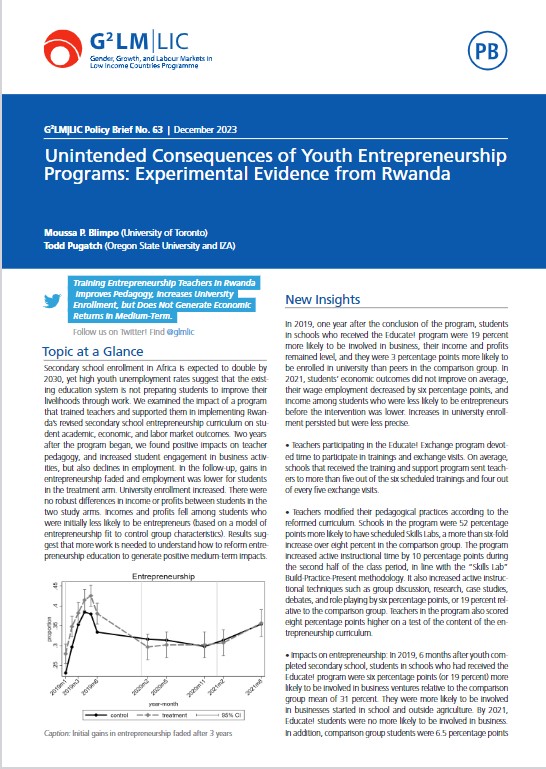Secondary school enrollment in Africa is expected to double by 2030, yet high youth unemployment rates suggest that the existing education system is not preparing students to improve their livelihoods through work. We examined the impact of a program that trained teachers and supported them in implementing Rwanda’s revised secondary school entrepreneurship curriculum on student academic, economic, and labor market outcomes. Two years after the program began, we found positive impacts on teacher pedagogy, and increased student engagement in business activities, but also declines in employment. In the follow-up, gains in entrepreneurship faded and employment was lower for students in the treatment arm. University enrollment increased. There were no robust differences in income or profits between students in the two study arms. Incomes and profits fell among students who were initially less likely to be entrepreneurs (based on a model of entrepreneurship fit to control group characteristics). Results suggest that more work is needed to understand how to reform entrepreneurship education to generate positive medium-term impacts.
